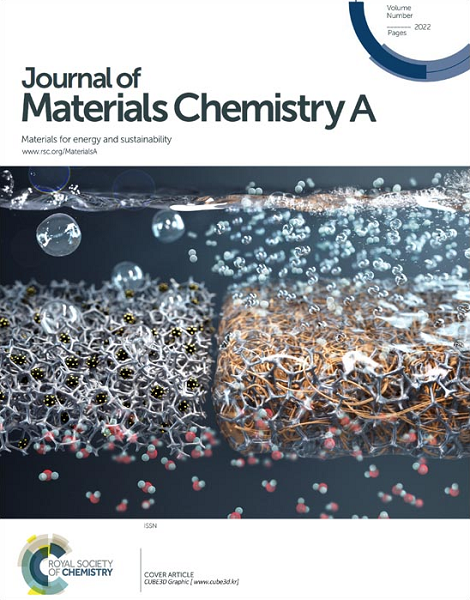二维共价有机骨架的客体诱导自适应孔隙动力学行为
IF 9.5
2区 材料科学
Q1 CHEMISTRY, PHYSICAL
引用次数: 0
摘要
二维(2D)共价有机骨架(COFs)通常被认为具有刚性的面内孔。在这项研究中,我们成功地合成了一系列二维COFs (NUS 126-128),其特征是在整个网络中交错排列AB堆叠。这些二维COFs在客体分子存在下表现出平面内孔隙的可逆动态行为,表现出在大孔(lp)和窄孔(np)之间可逆切换的孔隙呼吸行为。这种孔隙呼吸行为归因于COFs与溶剂分子之间的相互作用。本文章由计算机程序翻译,如有差异,请以英文原文为准。
Guest-Induced Self-Adaptive Pore Dynamic Behaviour of 2D Covalent Organic Frameworks
Two-dimensional (2D) covalent organic frameworks (COFs) are typically regarded as having rigid in-plane pores. In this study, we successfully synthesized a series of 2D COFs (NUS 126-128) characterized by a staggered AB stacking arrangement throughout the network. These 2D COFs exhibit a reversible dynamic behavior of their in-plane pores in the presence of guest molecules, displaying pore breathing behavior with a reversible switch between large pores (lp) and narrow pores (np). This pore-breathing behaviour is ascribed to the interaction between COFs and solvent molecules.
求助全文
通过发布文献求助,成功后即可免费获取论文全文。
去求助
来源期刊

Journal of Materials Chemistry A
CHEMISTRY, PHYSICAL-ENERGY & FUELS
CiteScore
19.50
自引率
5.00%
发文量
1892
审稿时长
1.5 months
期刊介绍:
The Journal of Materials Chemistry A, B & C covers a wide range of high-quality studies in the field of materials chemistry, with each section focusing on specific applications of the materials studied. Journal of Materials Chemistry A emphasizes applications in energy and sustainability, including topics such as artificial photosynthesis, batteries, and fuel cells. Journal of Materials Chemistry B focuses on applications in biology and medicine, while Journal of Materials Chemistry C covers applications in optical, magnetic, and electronic devices. Example topic areas within the scope of Journal of Materials Chemistry A include catalysis, green/sustainable materials, sensors, and water treatment, among others.
 求助内容:
求助内容: 应助结果提醒方式:
应助结果提醒方式:


